It’s tough to argue with numbers, but the Apple Watch remains the most popular smartwatch for many users out there. Google’s revamp of Wear OS 3 has been met with mixed results, and Wear OS 4 only seems to be more of an iterative update. And now that both Wear OS 4 and watchOS 10 have been announced by Google and Apple, respectively, we decided to take a look at a few things we would like to Google “borrow” from Apple.
A one-stop-shop for your health metrics
Google Fit. Fitbit. Which one are you supposed to use if you want to check your workout stats from your Pixel Watch? You could probably get away with using either one, but that’s not the point. With the Apple Watch, all you have to do is go into the Health app, which is also now coming to the iPad with iPadOS 17.
Health Connect was announced last year and is being baked into Android 14, aiming to provide a seamless way to interlink any of the different fitness tracking apps that you use. But even then, it might not work with certain smartwatches, such as the TicWatch Pro 5 which uses its own separate app.
It’s pretty apparent that Fitbit is eventually going to be found in the Google Graveyard, and the Google Fit app is pretty great in its own right. So instead of sitting on the fence, why not just come out and say “Google Fit is now the single destination for health tracking on Android!”? Yes, there are third-party OEMs to worry about, but that’s what Health Connect should be for, and Google should basically force Wear OS watchmakers to implement the appropriate APIs into wearable apps.
Uniformity across the entire platform
This one’s kind of cheating, but it’s something I would still like to see Google “push the issue” with. If you go through the interface on the Pixel Watch and the TicWatch Pro 5, you’re pretty much getting the same experience. Mobvoi offers different watch faces, and there are a few minor tweaks here and there, but it’s essentially the same.
But if you compare the Galaxy Watch 5 vs. Pixel Watch, you might not even be sure that Samsung’s not still using TizenOS until you come across the Play Store. As someone who prefers Google’s software taste more than Samsung and other Android OEMs, I feel as though the Wear OS platform would benefit from a bit more uniformity.
Perhaps instead of just giving OEMs the base for Wear OS and letting them run free with the interface, Google should pull back the reigns a bit. I mean, how great would it be to have Google’s excellent watch faces available, complete with the Material Design interface, available on the Galaxy Watch 5 Pro? Personally, I think it would be the perfect match, but I’m also the one that was campaigning for a Google Play Edition foldable phone until the Pixel Fold was unveiled.
Improved fitness features and automatic workout detection
During the WWDC 2023 Keynote, Apple spent about as much time on watchOS 10 as it did explaining the boring features coming to iOS 17. But this was for good reason, as there are improvements to Cycling and Hiking workouts, along with being able to view topographic maps and elevations, right from the Apple Watch.
As noted by my colleague, Michael Hicks, Samsung is expected to offer some improvements for the Galaxy Watch 5 (and Watch 6) via the One UI 5 Watch update. However, all of those new features are going to be limited to Samsung’s Galaxy Watch devices, and we won’t be surprised if some of them also require you to use a Samsung phone.
Putting it simply, Google needs to pay attention and start offering the same updates, at the same time for the Wear OS platform. A perfect example of where the Pixel Watch falls short of pretty much any of the best Android smartwatches is in its inability to automatically track workouts. Some updates have been released in an effort to improve this, but it’s really something that should have been available on the Pixel Watch from day one.
Apple might have the lead, but it’s still watching the competition
You might be surprised to notice that I didn’t point out how watchOS 10 is being improved to take better advantage of the screen real estate on the Apple Watch. Well, that’s because Google announced it’s doing pretty much the same thing with Wear OS 4, but we’re still waiting to see what that will look like.
And despite the massive market share that the Apple Watch holds, watchOS 10 is pretty evident that Apple isn’t just sitting around and waiting around. Smartwatch apps are abysmal, no matter whether you’re using an Apple Watch or a Wear OS smartwatch. Google and its Wear OS partners have gotten around this thanks to the carousel of cards that you can swipe through from your watch face.
With watchOS 10, Apple is copying Google’s homework, but actually changing it up a bit thanks to the introduction of Smart Stack. These are mini-widgets that you can scroll through “with a simple turn of the Digital Crown from any watch face.” It’s an excellent way to view data and interact with different apps without needing to open the app every time.
This is to say, that while Apple might have a huge lead, there’s still work to be done and the Apple Watch is no exception. I’m just keeping my fingers crossed that the Pixel Watch 2 will at least meet my expectations and that Google will release a product that can make a serious dent in the wearable market.










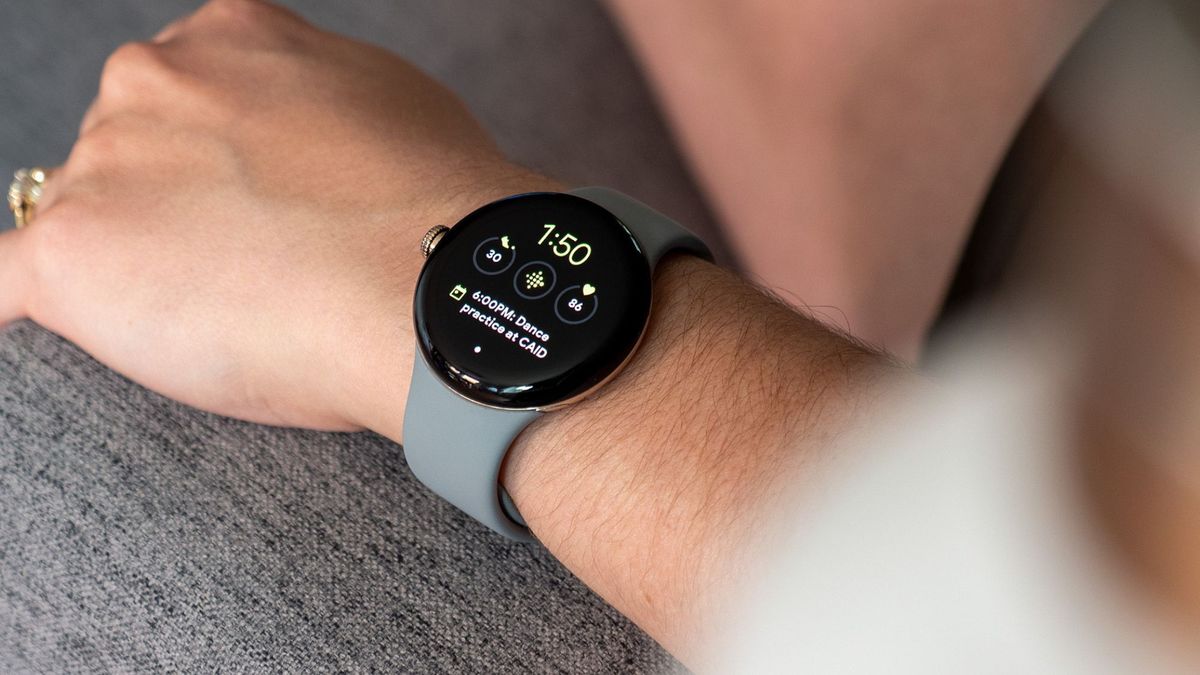
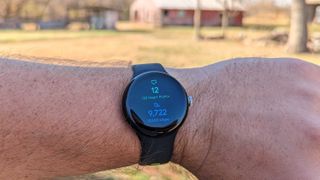
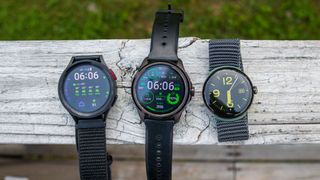
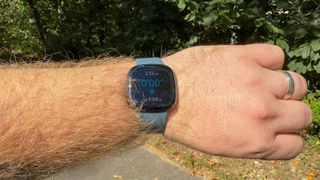
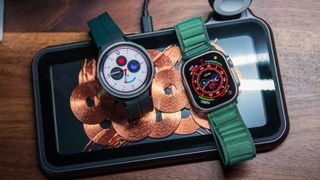
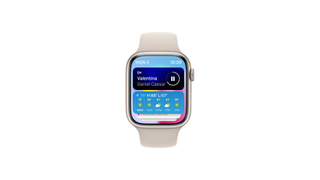


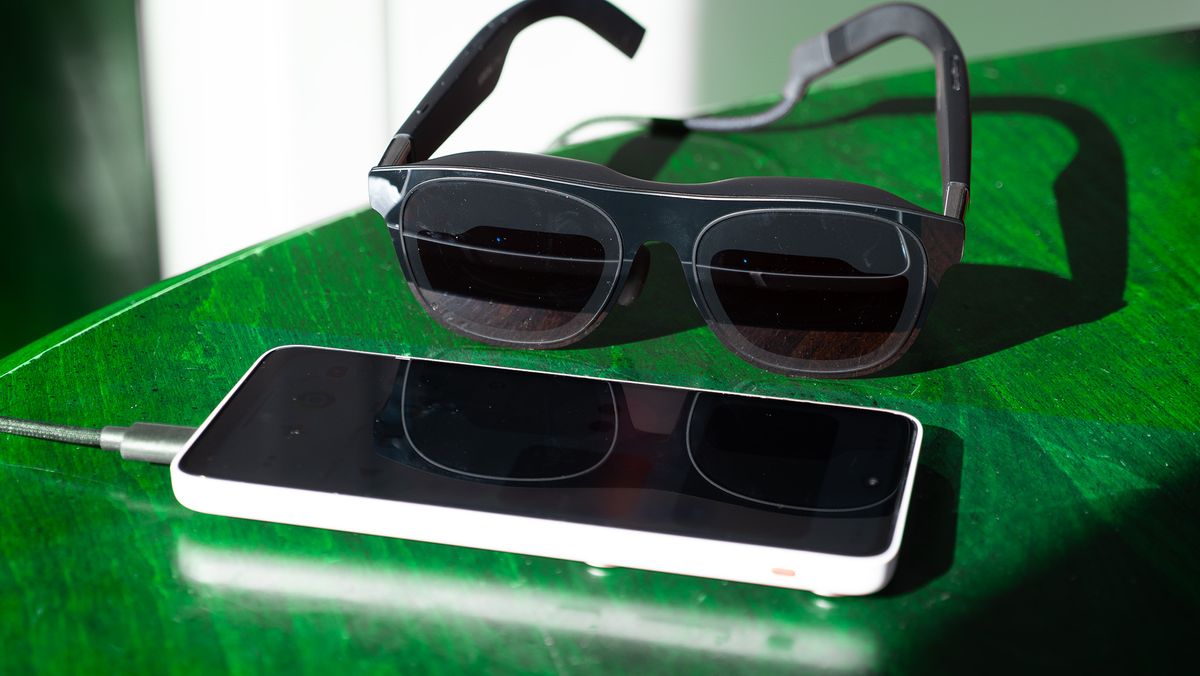


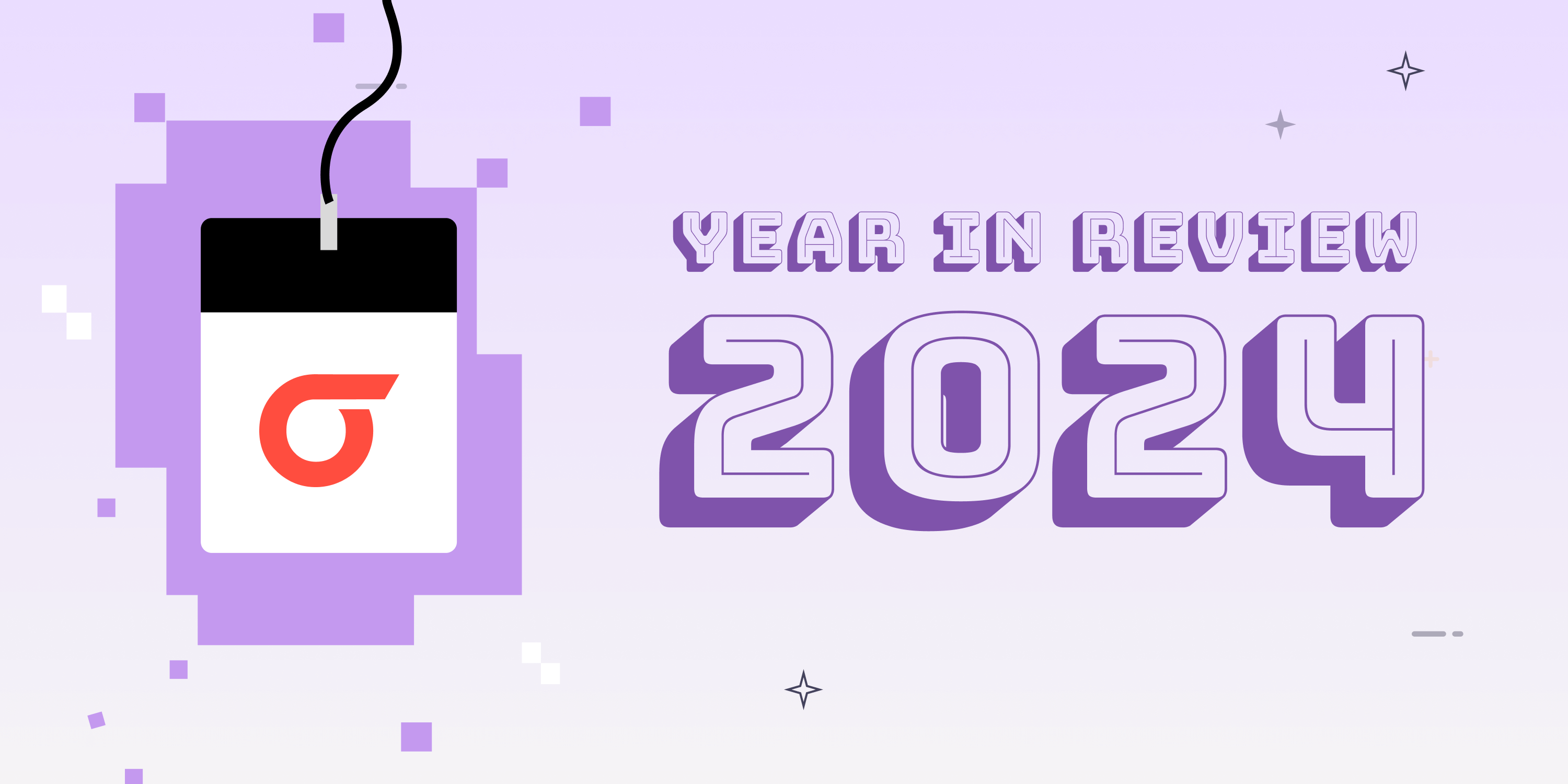




Discussion about this post